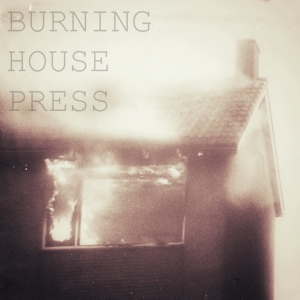Lazarus & the Real Boy
1. HE WHO IS NOW CALLED LAZARUS
was born a plain boy we
christened STUART
and thus it went
first his brain yellowed then grew
claws and we
were sore afraid
AND so Stuart waned and so his corpus rose
like a mountain and lo, it would hold several dogs—
a sofa, pack of smokes and some broken remotes there were
guns in there too (sore afraid)
the worst plan ever became the only plan ever
we wet the dirt
with our faces, cracked
lips on broke-bottle hopes
Stuart no more. But if we call out, “Lazarus!”
who is it that comes to us and who
will we be THEN
when we receive him?
II. THAT WEEK
For 3 days, shouting from the upstairs room. Behind the door: a TV and a man. Plates of picked-at pizza and hills of dishes rising through the thorns of forks.
On the 4th day, food no longer looked human, was brittle, dark on edges. Newspapers aged like teeth. The body smelled of need.
And still the blue-white light washed his cheeks and brow and bled from the crack under the door but he was gone.
On the 5th day, had he been able to speak, Lazarus might have said he was going on a journey. From which he might not…
When there was shouting, she had longed for silence. When there was silence, her longing died. The 6th day.
On the 7th day, God rested his case.
III. WHEN HE CALLS
Every day he calls from jail and
sometimes he’s lonely
and asks after the animals: have they
forgotten him and do I
still love him and asks sometimes
for a lullaby.
Lazarus, I say, get up. The door
is unlocked.
IV. LOVING LAZARUS
that he is alive,
that though it be poor, food will enter
his face,
that has mouth, that what is mouthshaped
may sometimes seem smile,
that blinks green glass
then reason decouples
at the rate of question, divide,
that we wait, watch
at the rate of kind
is he coming
or gone,
that stand that sit that he
that head will fall
into my lap like loose stone
that softbreathing pelt,
foot soldier of
faith and mechanics,
that smell of still living,
his hands dust storm and dirt water
that simple collision of feet,
floor-clothes, the bed, boxes,
piles crumbs cartons,
that he has risked everything
by rising, by opening
lungs, reach
out a hand that he is alive
that he has walked through years, that this
might be good day, be best day, yes
V. BIRTH
On the first day, the wound was cut. All stories start with a wound.
After the War
I. For Septimus (knotted)
having run out of boat
nerved disquiet
fever sweeping
into our mouths
here a man, at once threadlike flutter
deep in the disappearing
explodes
II. For Clarissa (nerved)
sweeping out of into woman
knotted she threadlike
mouths a fever
disquiet at the deep flutter
in our boat
the everyday disappearing
run, a woman once wrote
having crashed
III. After the War
theev eryda yhasc rashe dhewr oteme aning amanH ereme aning explo des

Kristina Bicher is a poet, essayist, and translator living in New York City. Her poems have been published in Ploughshares, Hayden’s Ferry Review, Plume, Denver Quarterly, Barrow Street, Narrative, Painted Bride Quarterly, and others. Her essays and profiles have appeared in The Atlantic, The Rumpus, and Columbia Journal, with translations in the Harvard Review and Tupelo Quarterly. She is the author of the poetry collection “She-Giant in the Land of Here-We-Go-Again” due out from MadHat Press in the fall of 2019 and “Just Now Alive” (2014). She holds an MFA from Sarah Lawrence College. @KristinaABicher Instagram
Featured photo credit: stephanie roberts @ringtales Instagram Sound Cloud


Leave a comment